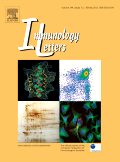
Cellular & Molecular Immunology
Scope & Guideline
Pioneering Insights in Immunology and Infectious Diseases
Introduction
Aims and Scopes
- Cellular Immunology:
Research on the roles and functions of various immune cells, including T cells, B cells, and innate lymphoid cells, in immune responses, autoimmunity, and cancer. - Molecular Mechanisms:
Studies investigating the molecular pathways and signaling mechanisms that regulate immune cell activation, differentiation, and function, particularly in the context of infections and diseases. - Immunotherapy and Vaccination:
Exploration of novel therapeutic strategies, including the development of vaccines and immunotherapies targeting cancer and infectious diseases, as well as understanding immune evasion mechanisms. - Neuroimmunology:
Research on the interactions between the immune system and the nervous system, particularly how immune responses can influence neurological diseases and vice versa. - Metabolism and Immunity:
Investigations into how metabolic processes affect immune cell function, including the impact of metabolic disorders on immune responses and the role of immune cells in metabolic regulation. - Inflammation and Autoimmunity:
Studies focusing on the mechanisms of inflammation and their contribution to autoimmune diseases, including the identification of potential therapeutic targets.
Trending and Emerging
- Personalized Immunotherapy:
A rising focus on personalized approaches to immunotherapy, including CAR-T cell therapies and individualized vaccine strategies, to enhance treatment efficacy against various cancers and infectious diseases. - Microbiome and Immunity:
An increasing interest in the interplay between the microbiome and the immune system, particularly how gut microbiota influence immune responses and disease susceptibility. - Inflammation and Immune Metabolism:
Emerging research is highlighting the connection between metabolic pathways and immune function, particularly how metabolic reprogramming can affect immune cell behavior in both health and disease. - Long-COVID and Post-Viral Immunity:
Growing attention is being paid to the immune responses associated with long-term effects of COVID-19 and other viral infections, providing insights into post-viral syndromes and therapeutic strategies. - Neuroimmune Interactions:
A trend towards understanding the bidirectional interactions between the immune system and the nervous system, especially in the context of neurodegenerative diseases and mental health.
Declining or Waning
- Basic Mechanistic Studies:
There appears to be a gradual decline in purely basic studies focusing on immune cell mechanisms without translational relevance, as the field shifts towards applications in clinical settings and therapeutic developments. - In vitro Models:
The use of traditional in vitro models for studying immune responses is becoming less prominent, with a growing preference for in vivo studies and translational research that better reflects human physiology. - Historical Perspectives:
Papers focusing on historical narratives or retrospective analyses of immunological discoveries seem to be less frequent, as the journal emphasizes current advancements and future directions.
Similar Journals

IMMUNOBIOLOGY
Fostering collaboration for impactful discoveries in immunobiology.IMMUNOBIOLOGY is a prestigious academic journal published by Elsevier GmbH that significantly contributes to the fields of hematology and immunology. With its ISSN 0171-2985 and E-ISSN 1878-3279, this journal has been disseminating impactful research since 1979, positioning itself at the forefront of immunological and hematological advances. The journal holds a commendable ranking of Q2 in Hematology and Q3 in both Immunology and Immunology and Allergy, indicating its relevance and influence within the scientific community, as reflected by its Scopus rankings. Although IMMUNOBIOLOGY operates under a subscription model, it remains dedicated to expanding knowledge across disciplines, fostering innovative research, and facilitating connections among researchers, professionals, and students. Situated in Munich, Germany, this journal is continually evolving and aims to remain an essential resource for the latest discoveries and insights in the realms of immunity and blood disorders, ultimately enhancing our understanding of complex biological systems.

TRENDS IN IMMUNOLOGY
Shaping the Future of Immunology Through Comprehensive ReviewsTRENDS IN IMMUNOLOGY, published by CELL PRESS, stands as a premier source of insights and developments within the field of immunology. With an ISSN of 1471-4906 and E-ISSN of 1471-4981, this journal has established a strong reputation, evidenced by its prestigious status in Q1 quartiles for both Immunology and Allergy in 2023. It is ranked #13 out of 233 in the Scopus category of Medicine – Immunology and Allergy, and #16 out of 236 in Immunology and Microbiology, placing it within the top 94th and 93rd percentiles respectively. Since its inception in 1987, TRENDS IN IMMUNOLOGY has provided a critical platform for researchers, professionals, and students to access the latest advancements and integrative reviews in immunological research. The journal offers open access options, enhancing the accessibility of its high-impact content to a global audience. Researchers and practitioners rely on its pages not only for cutting-edge findings but also for comprehensive discussions that drive the future of immunology research.

NATURE IMMUNOLOGY
Transforming research into real-world applications in immunology.NATURE IMMUNOLOGY is a premier academic journal published by NATURE PORTFOLIO, dedicated to advancing the field of immunology. With an impressive impact factor that reflects its esteemed position, this journal ranks in the top quartile (Q1) of renowned categories, including Immunology and Allergy. Serving as a crucial platform for researchers, professionals, and students, NATURE IMMUNOLOGY showcases cutting-edge research, comprehensive reviews, and insightful perspectives that drive innovation in immunological science. Based in the United Kingdom, this journal has been a vital contributor to the global discourse on immune responses and related diseases since its inception in 2000. Researchers can benefit from its rigorous peer-review process, ensuring that only high-quality studies are disseminated, thus enhancing their academic pursuits and practical applications. Explore the latest findings and trends within this flourishing discipline, making NATURE IMMUNOLOGY an essential resource for anyone engaged in the study of the immune system.

IMMUNOPHARMACOLOGY AND IMMUNOTOXICOLOGY
Elevating Knowledge in Immunopharmacology and Toxicological ScienceImmunopharmacology and Immunotoxicology, published by Taylor & Francis Ltd, is a distinguished academic journal with a focus on the interrelation between pharmacology, immunology, and toxicology. Established in 1978, the journal serves as a vital platform for the dissemination of cutting-edge research aimed at enhancing the understanding of immunologically mediated drug responses and toxic effects. The journal encompasses a broad scope of topics relevant to the fields of immunology, pharmacology, and toxicology, offering insights that are pivotal for both academia and the pharmaceutical industry. With a commendable 2023 impact factor and ranking in Q3 in Immunology and Q2 in both Pharmacology and Toxicology, it holds a respected position within its categories, making it a valuable resource for researchers, professionals, and students seeking to stay abreast of the latest developments in the field. The journal is accessible through traditional subscription models and encourages submissions that bring forth innovative findings that might influence therapeutic strategies and public health.

CELLULAR IMMUNOLOGY
Connecting Scholars in Cellular ImmunologyCELLULAR IMMUNOLOGY is a prestigious journal published by Academic Press Inc. Elsevier Science, dedicated to advancing the field of immunology. Established in 1970 and converging ongoing research up to 2024, this journal has carved out a significant niche within the academic community, boasting a notable Q2 ranking in the Immunology category and holding a respectable 67th percentile ranking within Scopus for its contributions to the disciplines of Immunology and Microbiology. The journal serves as a vital platform for disseminating high-quality research, reviews, and methodologies that elucidate the intricacies of cellular immune responses, thereby benefiting researchers, professionals, and students alike. Although it does not offer open access, the journal's impact is evidenced by its comprehensive coverage of pioneering studies and ongoing developments in the immunological sciences, positioning it as an essential resource for those seeking to deepen their understanding and engage with the latest findings in cellular immunology.

Science Immunology
Transforming Research into Therapeutic InnovationsScience Immunology, published by the American Association for the Advancement of Science, is a leading journal in the field of immunology, recognized for its significant impact and rigor in advancing our understanding of immune responses and complex diseases. With an impressive impact factor that places it in the Q1 category of both immunology and allergy, as well as miscellaneous medicine, this journal is ranked #7 and #8 in their respective Scopus categories, reflecting its high-quality research output. Since its inception in 2016, Science Immunology has been at the forefront of interdisciplinary immunological research, fostering crucial insights that link immunology with pressing health challenges. The journal is committed to providing open access to its content, ensuring that groundbreaking findings are accessible to a global audience of researchers, professionals, and students. Its anthology not only addresses fundamental immunological mechanisms but also enhances the dialogue on translational applications and therapeutic interventions, solidifying its position as an essential resource within the scientific community.

Genes & Diseases
Shedding light on the genetic foundations of disease.Genes & Diseases, published by KEAI PUBLISHING LTD, is a premier open-access journal dedicated to advancing the fields of genetics, biochemistry, and molecular biology. Established in 2014 and headquartered in Beijing, China, this journal has quickly risen to prominence, securing a place in the prestigious Q1 quartile in Biochemistry and Genetics (clinical), as well as Q2 in Cell Biology and Q1 in Molecular Biology as of 2023. With a commitment to disseminating cutting-edge research, Genes & Diseases serves as a critical platform for researchers, professionals, and students alike, ensuring that high-quality scientific work is openly accessible to the global community. The journal's exceptional impact is underscored by its selective Scopus rankings, which reflect its influence and relevance in key scientific domains, making it an essential resource for those exploring the intersections of genetics and disease pathology.

JOURNAL OF IMMUNOLOGY
Fostering Innovation in Immunology ResearchWelcome to the JOURNAL OF IMMUNOLOGY, a prestigious publication associated with the American Association of Immunologists and dedicated to advancing the field of immunology. With a rich history dating back to 1945, this journal is renowned for its high-impact research, evident in its notable 2023 Q1 rankings in both Immunology and Allergy, as well as its strong positions in Scopus rankings—Rank #68 in Immunology and Allergy and Rank #79 in Immunology and Microbiology. Although it operates on a subscription basis, its commitment to publishing cutting-edge studies ensures that it remains a vital resource for scientists, healthcare professionals, and students alike. As the journal continues to pave the way for innovative research and breakthroughs in immunological science, it facilitates a platform for dialogue and discovery among researchers and practitioners across the globe.

Immunological Medicine
Pioneering Discoveries in Immunology and AllergyImmunological Medicine, published by Taylor & Francis Ltd, is an esteemed open-access journal that has made significant strides in the field of immunology since its establishment in 2018. With an E-ISSN of 2578-5826, the journal has quickly gained recognition for its contribution to advancing immunological research, evidenced by its impressive ranking in the Q2 quartile for both immunology and allergy. Positioned in the United Kingdom, it offers a platform for publishing high-quality original research, reviews, and case studies that delve into the complex interactions of the immune system and its implications for human health. The journal serves as a vital resource for researchers, professionals, and students engaged in the burgeoning fields of immunology, providing open access to a wide audience and fostering collaboration and innovation. With a current Scopus ranking of #81 out of 233 in Immunology and Allergy and #97 out of 236 in Immunology and Microbiology, the journal aims to enhance the visibility and impact of cutting-edge research by bridging the gap between academia and clinical practice.

IMMUNOLOGY LETTERS
Exploring the Frontiers of Immune MechanismsIMMUOLOGY LETTERS, published by Elsevier, is a distinguished journal in the field of immunology, focusing on the latest advancements and findings that significantly influence immunological research and clinical applications. Established in 1979, the journal has evolved to cater to a global readership, featuring high-quality peer-reviewed articles across a diverse spectrum of topics related to immunity and allergic responses. With an impressive Q2 category ranking in both Immunology and Allergy as of 2023, it holds a strong position within the scientific community, evidenced by its commendable Scopus rankings (Rank #71/233 in Medicine - Immunology and Allergy and Rank #85/236 in Immunology and Microbiology - Immunology). While primarily subscription-based, the journal aims to foster knowledge dissemination that encourages collaboration among researchers and practitioners alike, making significant contributions to the understanding of immune mechanisms. The journal is integral for educators, students, and professionals aiming to stay abreast of current trends and breakthroughs in the immune system's intricate functions.